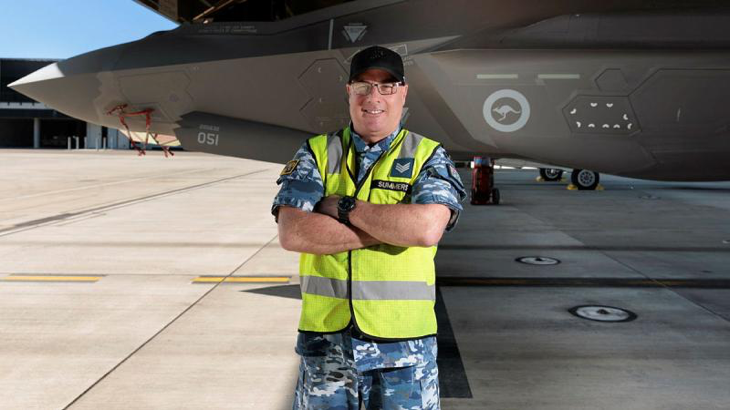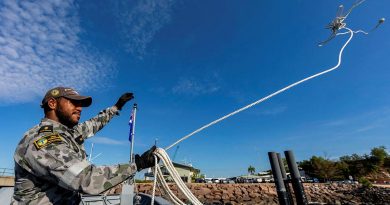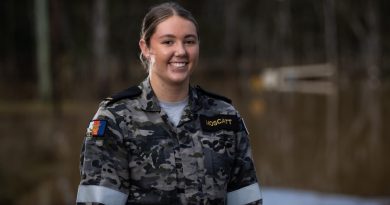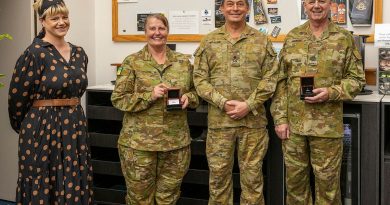Breaking the stigma of PTSD

Sergeant Andrew Summers, of 2 Operational Conversion Unit at RAAF Base Williamtown in NSW, is an example of how proactive health management can help with the condition known as post-traumatic stress disorder (PTSD).
CAPTION: Sergeant Andrew Summers in front of a F-35A Lightning II at 2 Operational Conversion Unit, RAAF Base Williamtown, NSW. Story by Squadron Leader Bruce Chalmers. Photo by Aircraftman Kurt Lewis.
His experience has prompted him and his wife to help other people going through their own mental-health conditions.
“I began my military career in the Army as an infantry soldier and, after transferring to the Royal Australian Air Force, I deployed to Iraq and Afghanistan in 2006 and 2008,” Sergeant Summers said.
“PTSD began affecting me after my first tour of duty. I lost a Canadian friend within the last week of my tour.
“As a bagpiper, I volunteered to pipe his remains at a ramp ceremony to send him home to his family. It was the first of what was to be many over the two tours.”
Initially, Sergeant Summers covered up the nightmares and the grief. Over time, his condition worsened, until one night he attempted suicide.
His wife, Tina, saw he had a problem.
Fortuitously, she met someone at church who was a psychologist in the Army, and he connected Sergeant Summers with Jo, a psychologist at Singleton Army Barracks.
Jo is a person they trust. She gave Sergeant Summers the tools he needed to function in society.
Living with PTSD was a difficult time for him and his family.
“My condition improved upon receiving counselling, but was triggered again after a siege in Sydney,” Sergeant Summers said.
“I lived in a state of hyper-vigilance whenever I wasn’t at home or at work. Visiting family in Sydney itself was petrifying.
“I received an incredible breakthrough last year after visiting a mosque in Sydney. My experiences had given me a hatred for all Muslims, and as a Christian, this ripped me apart because hate isn’t from God.
“My wife set up a meeting with the Imam, preparing him for what I wanted to do, and it was at the mosque that I asked the Imam to forgive me for this hatred.
“He replied, ‘I hugged you when you came in, didn’t I?’ Since that day I haven’t had any more symptoms of PTSD,” he said.
PTSD doesn’t discriminate against age, gender or ethnic background.
“I haven’t forgotten the lessons PTSD taught me. My passion is to speak out and break the stigma of mental health and encourage people to get help,” Sergeant Summers said.
Sergeant Summers and Tina are heavily involved in telling their story to support mental-health awareness and have written a book, Through the Valley (available at any online retailer), the profits from which go to mental-health charities.
World Mental Health Day, held on October 10 each year, raises awareness of mental-health issues and focuses on available Defence resources to enhance mental-health wellbeing.
Mental health is a part of holistic health and Defence is committed to reducing the stigma preventing people from seeking help for mental illness.
For mental health support visit Mental Health Online.
.
.

.
.





